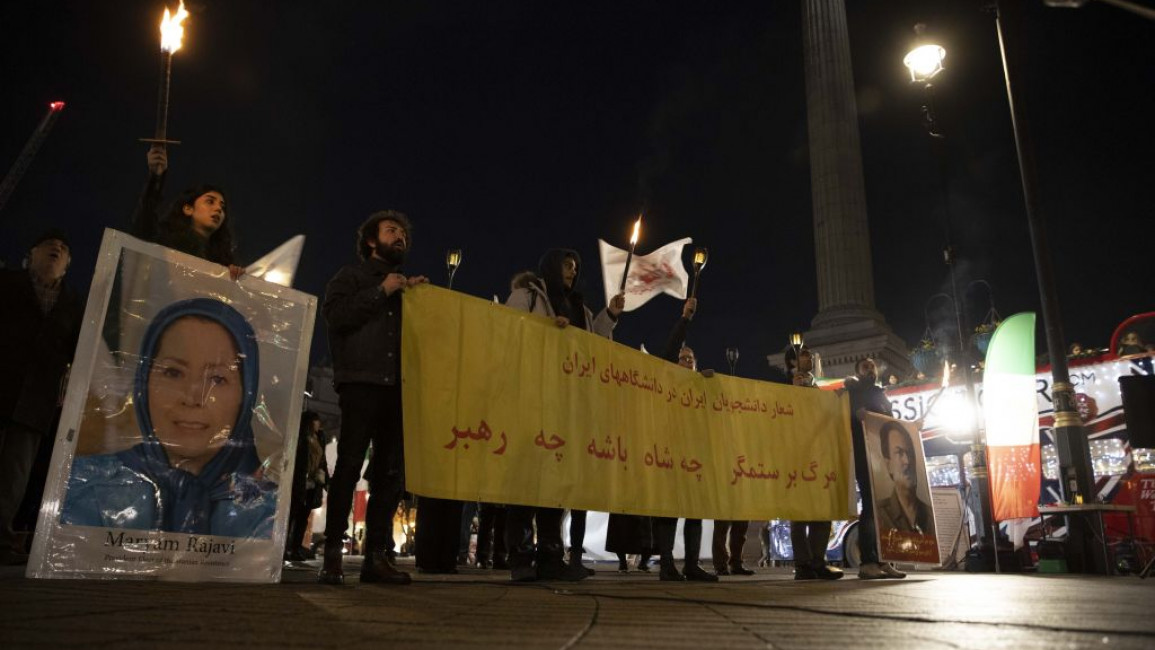'Repent to be pardoned': How Iran's judiciary offers amnesty to protestors
Investigations by The New Arab and interviews with political prisoners and student activists have shown that the general amnesty ordered in February by Iran's supreme leader only applied to those who signed what the authorities called a "commitment letter".
On 5 February, the Farsi media affiliated with the establishment reported with great fanfare that "tens of thousands" of protesters would be released based on an amnesty offered by Ayatollah Ali Khamenei.
Just a few hours after Khamenei's office announced the amnesty, a deputy of the judicial system, Sadeq Rahimi, stressed that the pardon would be limited to "the accused and convicted individuals who announce the disgust against their actions in the past, and pledge not to repeat those actions".
However, over one month after Rahimi's remarks, it had become clear that the preconditions for releasing the arrested protestors and activists detained before the 2022 anti-establishment protests were self-incriminating letters and announcing allegiance to the Supreme Leader.
Moreover, some activists were kept in custody and sentenced to lengthy prison terms despite signing the statements, and another activist was arrested again just a few hours after her release.
Legal ground for future punishment
"The statement they put in front of me to sign was a self-declaration that I had committed crimes such as plotting against Iran's national security to cause harm to my country," told TNA a student activist who has been suspended from studying at a university in the capital Tehran.
According to this student, who refused to sign the "commitment letter", the university officials wrote it so that it could be used against the students in the future.
"They wanted me to sign a paper that gave them the right to arrest me or kick me out of the university because of my activism. Anyway, they can do that any time they want, so why should I give them the legal ground for that?" the student added.
This student, who was also banned from entering the university campus and dormitories, is still waiting for the decision by what is known as the Disciplinary Committee, a board consisting of security officers at the higher education ministry and representatives of the supreme leader.
The officials in Iran have not announced any details on the number of students suspended from the universities because they supported anti-establishment protests that engulfed the country after the death in custody of 22-year-old Mahsa Amini. But rights groups documented that at least 600 students have been arrested nationwide during the crackdown on the protests in Iran.
"Now they think they have won the fight and want to humiliate us; that's why I didn't sign their 'repentance letter'," the student activist stressed.
"With other students who were suspended like me, we had a lot of heated discussion about signing the 'repentance letter' or not, and finally, we concluded that each person should decide based on their situation and ideology," the activist explained.
Repent for being 'manipulated by foreign media'
A political prisoner released from the infamous Evin prison after the general amnesty said that the inmates, like student activists, had the same discussions about what he called the "say uncle letter".
"I signed the letter because I think I will be more useful outside the prison than being inside with no involvement in what is happening in society," told TNA, the former political prisoner, who was serving his two-year prison term based on charges of 'disturbing public order' and 'acting against the national security'.
According to information he shared with TNA, the statements the inmates had to sign to be considered for the pardon were self-incriminating. In some accounts, the inmates had to say they "carried out criminal acts under the impact of foreign enemy media", adding that in the future, they "will follow the orders of the supreme leader".
This former inmate added that the text of the statements differed based on the previous activities of prisoners and the situation in which they were arrested. For example, some had to sign an account in which they had to confess "they repent because of carrying espionage for enemy countries".
"Before being released, my interrogator told me if I got arrested again, I would face a much longer prison term, and I assured him that I would not do anything political anymore. But, I think he, like me, knew that I was lying," he added.
Based on the figures released by the officials, over 22,000 individuals arrested about the protests after Amini's death were pardoned by Khamenei's order. However, some, like Samaneh Asghari, were not as lucky and faced harsh sentences even after they signed the repentance letter.
On 6 March, Asghari, an activist fighting against child labour, was sentenced to 18 years in prison.
Meanwhile, in a message from inside the prison, Narges Mohammadi, a prominent political activist, criticised the authorities' pardon saying that the general amnesty "was a deceitful show to trick western governments, international rights groups and the UN Human Rights Council".
In a 27 March message, Mohammadi, serving an eight-year sentence, said: "We don't want the establishment to pardon us. What we want is the Islamic Republic [of Iran] to come to an end".



